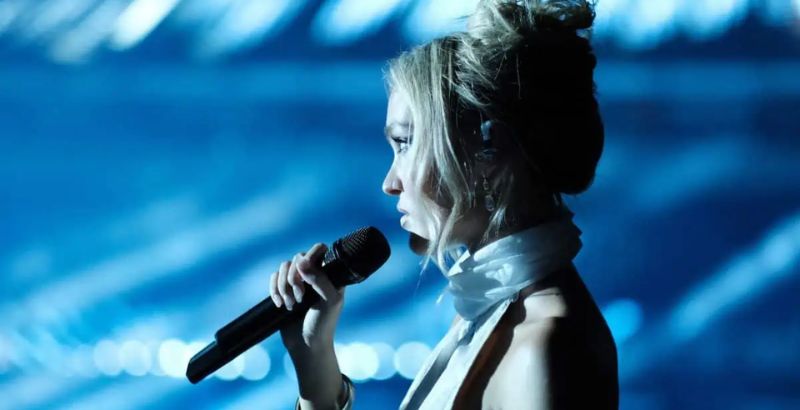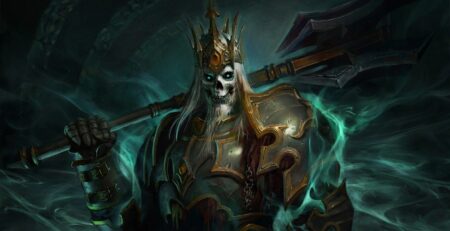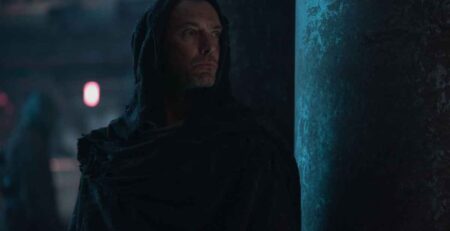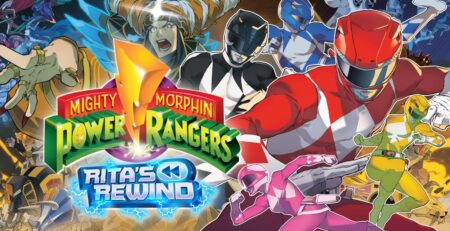
After debuting at Cannes, The Idol has been a major topic of conversation. From the controversies on set to the overall quality of the series, once it debuted, the series has at least kept people talking about it, for better and worse. The series stars Lily-Rose Depp as our idol, Jocelyn. Standing on the ledge of a true breaking point, a leaked photo from Jocelyn’s ex threatens to blow up her career which feeds into her inability to cope with her mother’s death. But instead of having her world tour canceled, she’s manipulated by Tedros, a con man of a nightclub owner who quickly exerts control over Jocelyn’s life and music—played by The Weeknd—after a “chance encounter.”
In the first episode, “Pop Tarts & Rat Tales,” the audience is introduced to Jocelyn. She’s a great actress, performing for a photo shoot and doing all the right things with turmoil simmering under the surface. It’s only by design that we don’t see it. Instead, we see the perspectives of Jocelyn’s team about her situation, and as people talk at her, there isn’t a true sense of who she is. Then, in a reign of chaos, Jocelyn’s life, once curated for journalists with the help of her team, starts to descend into a toxic love story that quickly changes into something more than a complicated relationship into a time bomb of control and manipulation as her upcoming tour date gets closer.
While it’s clear that Tedros is modeled after a new-age cult leader with the people he’s brought into the house, The Weeknd’s performance is always hilarious. Even when he’s attempting to be intimidating, he’s pathetic, and it’s never entirely clear tonally within the context of the series that the clownery is intentional. There are different sides to Tedros. There is the nightclub owner Tedros, the self-help guru Tedros, and the crying mess that needs Jocelyn’s version of Tedros. That said, none of them are ever in conversation with each other, and Tedros becomes a single note instead of a dynamic character.
Additionally, because of this tonal disconnect in one character, everything else in the series falters. In truth, The Idol is a mess. From the tonal whiplash to The Weeknd’s bad wig, and dialogue that is people talking at each other instead of holding a conversation, the series has continued to be a frustrating effort in patience for many viewers. But why keep going if it’s so bad? Well, because there are moments that are so well-acted that the cast kept me there.
The Idol Episode 5 tries to right the ship, but you can’t really right a course that has led the ship to lay on the bottom of the ocean floor. The series is abysmal, but buried under the mess are gems of direction and acting that shows the audience what things could have been. Instead of standing tall, The Idol cuts itself short. There is depth missing.
Izaak (Moses Sumney), Xander (Troye Sivan), Leia (Rachel Sennott), Chloe (Suzanna Son), Destiny (Da’Vine Joy Randolph), and Chaim (Hank Azaria) all bring performances that individually work. The largest issue is, however, how the men in the series are prioritized. From Andrew (Eli Roth) to Tedros, it’s all about satisfying them. This isn’t inherently bad. When telling a story about the dark side of Hollywood and stardom, noting the ways in which it uses and throws away women in the process is fertile ground for storytelling. However, without keeping empathy-building moments that show Jocelyn’s perspective not just of her own situation but her relationships with other characters, any exploration is surface level at best and imaginary at worse.

In fact, it’s worse because you can see the fingerprints where Levinson reached in and pulled out the meat given to female characters. There are no scenes to build relationships between Jocelyn and her best friend Leia. Jocelyn’s backup dancer Dyanne (Jennie Kim) remains just that despite there being a conflict between her and Jocelyn when it comes to working and when it comes to essentially being with the same man. Dyanne betrays Jocelyn, but there is no understanding of the meaning that has in their lives because Dyanne has been reduced to ADR lines and sitting in scenes with no lines at all.
While it could be bad planning, every report from HBO and sources on the show have shown that concluding at five episodes instead of six was by Sam Levinson’s design after he revamped the series. There is something missing that keeps the stellar cast in the spotlight. Not to mention that the series controversy about reframing the narrative from Jocelyn’s perspective to a masculine one, because even when Tedros has been reduced into a coked-out puddle of a sweaty clown, he still wins.
The last two episodes of The Idol try to show Jocelyn taking control of the relationships in her life and her career, only to be ignored. Once her nervous breakdown was made public, her team and managers didn’t see her as ever moving beyond crisis mode. Levinson and The Weeknd were never going to give Jocelyn the upper hand. Even when she’s winning, she’s losing everything in the process, even when she throws away the new persona that Tedros crafted for her. In an attempt to make it seem like Jocelyn has taken control, against the judgment of her inner circle because she took Tedros back on her terms, Jocelyn’s girl boss moment is vapid in a way that throws out any growth we see Jocelyn endure throughout the series.
The Idol is a difficult series to watch because it has all of the individual elements to make it great. Instead of putting on a symphony, it’s a loud, bombastic, and empty cacophony. The absolute worst thing about The Idol is that now, I’m always going to wonder what it would have looked like before Episode 6 was cut, before the perspective was shifted, and before The Weeknd became the main character.
The Idol is streaming now on MAX.
The Idol
-
Rating - 4.5/104.5/10
TL;DR
The Idol is a difficult series to watch because it has all of the individual elements to make it great. Instead of putting on a symphony, it’s a loud, bombastic, and empty cacophony. The absolute worst thing about The Idol is that now, I’m always going to wonder what it would have looked like before Episode 6 was cut, before the perspective was shifted and before The Weeknd became the main character.




